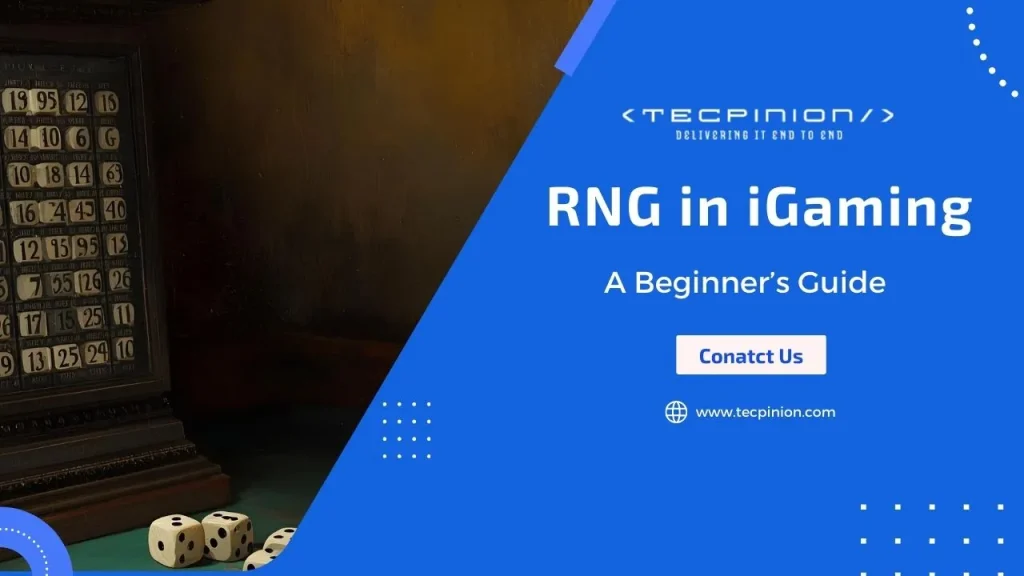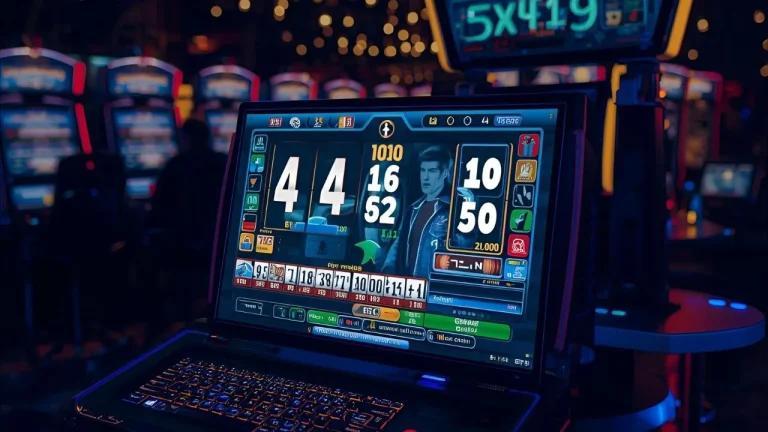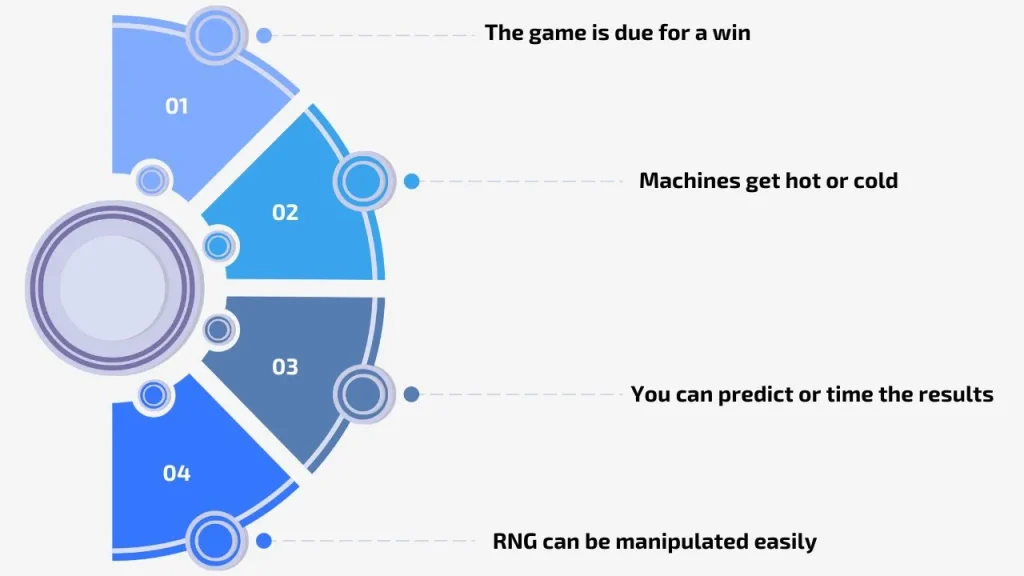What is RNG in iGaming? A Beginner’s Guide to Random Number Generators

Table of Contents
- Introduction
- What is RNG (Random Number Generator)
- Why RNG is Crucial in iGaming
- Types of Random Number Generators in iGaming
- How RNG Works in Online Games
- RNG Certification and Testing
- Common Misconceptions About RNG
- RNG and Game Fairness: What Players Should Know
- Key Difference: RNG Outcomes vs Real-world Dealer Actions
- Tecpinion’s Role in RNG-Driven iGaming Solutions
- Final Thoughts
- FAQs
Introduction
Ever wondered what determines the outcome of an online slot spin or a virtual card shuffle? It’s not luck alone—it’s something called RNG, or Random Number Generator. In the world of iGaming, RNG is the technology that keeps every game fair, unpredictable, and exciting. Whether you’re spinning reels, drawing cards, or rolling digital dice, RNG is working behind the scenes to make sure no one—not even the casino—can predict the outcome. For beginners, RNG might sound technical or even mysterious, but it’s actually one of the most important concepts to understand when exploring online casinos. Knowing how it works can help you play smarter, manage your expectations, and trust that the games are truly based on chance. In this beginner-friendly guide, we’ll demystify RNG—what it is, how it works, and why it matters in the ever-growing world of iGaming. Let’s unlock the code behind the games.
What is RNG (Random Number Generator)?
Role of RNG in iGaming
The main job of an RNG is to make sure the results in every game are unpredictable and fair.
- For example, when you spin a slot machine online, the RNG instantly generates a random number that determines which symbols appear.
- This keeps the game fair and builds trust by making sure that no player, casino, or developer can know or manipulate the outcome.
Why RNG is Crucial in iGaming

Random Number Generators are what make online games fair. They make sure that every game is fair, whether it’s spinning the reels in slots, dealing cards in blackjack, or guessing what will happen when the roulette wheel stops. By producing results that cannot be influenced or foreseen, RNGs prevent any form of predictability or manipulation, ensuring that neither players nor operators can control the outcome. This level of unpredictability keeps the games exciting while maintaining integrity across the platform.
Equally important, RNGs help build trust among players. Players need to be sure that the games they play are fair and not rigged, especially when money is on the line. This is guaranteed by certified RNG systems that are tested on a regular basis by independent authorities to show that the results are truly random. Without RNGs, the entire foundation of iGaming would be questioned, as fairness and transparency are what encourage players to return and engage with these platforms.
Types of Random Number Generators in iGaming
In the iGaming industry, Random Number Generators are used in different forms to ensure fairness and unpredictability. The two most common types are True Random Number Generators (TRNGs) and Pseudo Random Number Generators (PRNGs).
-
True RNG (TRNG)
1. Works by measuring random physical processes, like electrical noise, radioactive decay, or atmospheric data.
2. The results are completely natural and unpredictable.
3. TRNGs are often used in highly secure systems, but they are slower and more complex to implement for online casinos. -
Pseudo RNG (PRNG)
1. Relies on mathematical formulas (algorithms) to generate sequences of numbers that appear random.
2. Although based on programming, the results are so complex that they’re practically impossible to predict.
3. PRNGs are the most common type of random number generator used by online casinos because they are quick, effective, and dependable, especially for games with a lot of players, like slots or poker.
Both TRNGs and PRNGs are important in online gaming. TRNGs give true randomness, while PRNGs are used more in iGaming because they are fast, reliable, and can handle millions of players.
Would You Like to Explore More about iGaming?
How RNG Works in Online Games
Unlike true randomness found in nature, a pseudo-RNG uses a mathematical formula and a starting value called a seed to create unpredictable outcomes. While not truly random in the scientific sense, when properly coded and regularly tested, PRNGs are extremely effective at ensuring fairness in online games.
One interesting feature of PRNGs is that they continuously generate random number sequences, even when no one is playing. This means when you click “spin” or “deal,” the system instantly selects the current number in the sequence—making it impossible to time or predict.
RNG Certification and Testing
For players to trust online casinos, it’s not enough for operators to simply claim that their games are fair—their Random Number Generators (RNGs) must be independently certified and tested. Third-party audits are essential because they verify that the RNGs used in slots, table games, and other iGaming titles are truly random, unbiased, and cannot be manipulated by either the casino or the players.
Several well-known testing agencies carry out these audits, including eCOGRA (eCommerce Online Gaming Regulation and Assurance), iTech Labs, and Gaming Laboratories International (GLI). These groups check that the RNGs’ algorithms are working right, run simulations to make sure the outcomes are fair, and make sure they follow international gambling rules.
If a game or platform has the label “RNG certified,” it means that the RNG has passed these strict tests and is officially recognised as fair and reliable. For players, this certification provides peace of mind, as it guarantees that every spin, shuffle, or roll they experience is based purely on chance, not manipulation.
Common Misconceptions About RNG

There are a lot of myths regarding how Random Number Generators work in iGaming, and they can occasionally confuse gamers. Knowing the facts helps you tell the difference between what is true and what is not.
- “The game is due for a win” – It’s a common belief that if a machine hasn’t paid out for a while, it must be “due” to give a big win soon. However, RNG outcomes are completely random and independent of previous results. Each spin or hand has the same chance of winning, regardless of what happened before.
- “Machines get hot or cold” – Players often talk about machines being “hot” (winning a lot) or “cold” (losing frequently). In reality, RNGs don’t remember past outcomes or change their behavior. Winning streaks or dry spells are just natural random variation, not a sign of the machine “feeling” a certain way.
- “You can predict or time the results.” – Some players try to find patterns or strategies to predict when a machine will pay out. Because RNGs generate outcomes at lightning speed and continuously—even when no one is playing—it’s impossible to predict or time the results.
- “RNG can be manipulated easily” – While it’s possible to tamper with software, licensed and regulated gaming platforms use certified RNGs tested by independent labs. This makes manipulation highly unlikely and illegal.
Clarifying Myths with Facts
- Randomness is guaranteed: Certified RNGs are put through a lot of tests to make sure they are fair and random.
- Every outcome is independent: No spin or hand affects the next one.
- Fairness is regulated: Trusted gaming authorities require strict standards to protect players.
Players can enjoy games with clear expectations, knowing that luck—not hidden tricks—decides every result.
RNG and Game Fairness: What Players Should Know
RNG proves that games are fair and not rigged. Clear rules and RTP percentages guide players on what to expect, while licensed casinos use certified RNGs to ensure results are random and unbiased. This builds trust, supports responsible play, and helps players enjoy games with confidence and realistic expectations.
-
Transparency in Game Rules and RTP
1. Players should look for games that make the rules and Return to Player (RTP) percentages easy to see.
2. RTP helps players understand the average expected return over time. -
Importance of Licensed and Regulated Platforms
1. Licensed platforms must undergo independent RNG testing and certification.
2. Regulation ensures fairness, accountability, and player protection. -
How RNG Supports Responsible Gaming
1. RNG stops results from being predictable, which lowers the chance of getting stuck in patterns that lead to addiction.
2. Helps maintain realistic expectations by ensuring every spin/play is independent.
Key Difference: RNG Outcomes vs Real-world Dealer Actions
Here’s a clear comparison that shows the main difference between RNG outcomes and what dealers do in real life:
Aspect | RNG Outcomes | Real-World Dealer Actions |
Source of Outcome | Computer algorithm (Random Number Generator) | Human dealer using physical cards, dice, or roulette |
Randomness | Mathematically simulated randomness | Physical randomness influenced by manual handling |
Consistency | Always consistent and unbiased (if certified RNG) | May vary slightly due to human error or physical factors |
Speed | Instant and automated | Slower due to manual processes |
Transparency | Backed by certified software and regulatory audits | Can be observed in real-time, often streamed live |
Manipulation Risk | Low (on licensed platforms with tested RNG) | Low in regulated casinos, but human error is possible |
User Experience | Fast-paced, solo play experience | Social and immersive, often with live interaction |
Tecpinion’s Role in RNG-Driven iGaming Solutions
Final Thoughts
This unpredictability is what makes games fun and fair, and it also helps players and gaming platforms trust each other. Players can enjoy the game with confidence when they know that every outcome is based only on chance. But the fairness of RNG only matters if it is set up correctly and tested often. Independent agencies check that the results are truly random and free from bias on licensed and trustworthy platforms that use certified RNG systems.
These certificates show that the games are safe, trustworthy, and can’t be changed without anyone knowing. RNG not only keeps players safe, but it also helps keep the whole gaming business honest. It makes the gaming experience both safe and fun by making sure that every spin, card, or roll is fair. This provides everyone an equal chance to win.
FAQs
- What does RNG stand for in iGaming?
RNG stands for Random Number Generator. It’s the technology that makes sure game outcomes—such as slot spins, card draws, or dice rolls—are completely random and fair, so every player has an equal chance of winning.
- Why is RNG important in online gaming?
RNG makes sure that every game's outcome is random and separate, so no one can change it, and everyone has a fair chance to win.
- How does RNG work in games like slots or roulette?
RNG software is always creating random numbers in the background. The moment you press “spin” or “deal,” it instantly selects one of those numbers to decide the game’s outcome.
- Are RNG games truly random?
Yes—certified RNGs go through rigorous testing by independent labs to ensure that outcomes are statistically random and not biased.
- Can players predict or beat RNG?
No. RNGs are designed to be unpredictable. There are no patterns, and past outcomes don’t affect future ones.
- Is it safe to play RNG-based games?
Yes—as long as you play on licensed, regulated platforms. These platforms use audited RNGs to guarantee fairness.
- What is RTP, and how is it related to RNG?
RTP (Return to Player) is the percentage of wagered money a game is expected to return over time. RNG ensures the game plays out fairly to reflect this average rate.
- Can RNGs be manipulated by casinos?
Licensed operators are required to use third-party-tested RNGs, making manipulation illegal and unlikely. Avoid unlicensed sites to stay safe.


